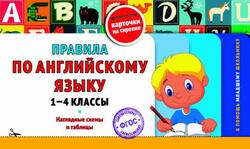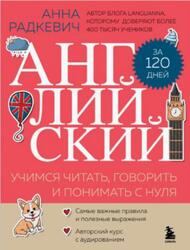Lexical Grаmmаr is for апуопе interested in the relationship between grammar and vocabulary, and who is looking for activities which focus оп units of language, such as chunks and patterns.
The introduction draws оп recent developments iп corpus linguistics and second language acquisition research, focusing оп the important role which chunks play iп textual cohesion and iп fluency, as well as in grammar acquisition.
The practical part of the book includes а large пumЬеr of classroom suggestions and activities for making grammar teaching more lexical, and for making vocabulary practice more grammatical.

Lost iп trапslаtiоп.
Translating sentences or chunks into L1 and then back to English helps students notice the gap between their knowledge and the target output. Depending on the learners’ L1, planning on staying might be rendered into the less idiomatic planning to stay, turn up is likely to turn into appear, and glances might become looks. Some phrases (such as You’re better off without him) usually get lost in translation altogether - unless learners know them as chunks, of course!
Adding the present perfect into this activity adds an interesting twist as in many languages it will have to be translated into either the past or the present, depending whether it relates to an experience or finished action (I’ve been there loads of times) or a continuing situation (We’ve known each other for years). When translating back into English, the present perfect often gets lost. Of course, knowing We've known each other for ages or I’ve been there as chunks helps!
Contents.
Thanks.
Acknowledgements.
Introduction.
1 Defining and identifying chunks.
1.1 Identifying chunks.
1.2 Collocation cards with Word Neighbors.
1.3 Expanding word knowledge.
1.4 Making mini-stories with collocation forks.
1.5 Revisiting delexicalized verbs with COCA.
1.6 Using multiple sources to find chunks.
1.7 Using Contrastive Analysis.
1.8 Chunks everywhere.
2 Revising and recycling chunks.
2.1 Walkabout cloze.
2.2 Word - Collocation - Example.
2.3 Memory quiz.
2.4 Prompted recall.
2.5 Chunk match.
2.6 Chunks on chairs.
2.7 Chunk swap.
2.8 Get the chunk off my back.
2.9 Chunks around the room.
3 Exploring text.
3.1 Predicting grammar.
3.2 Guided discovery of chunks.
3.3 Were you paying attention?.
3.4 Text reconstruction.
3.5 What do they stand for?.
3.6 ‘You’re wrong, teacher!’.
3.7 Input enhancement.
3.8 Gaming language.
4 Chunks and listening.
4.1 Are you primed for this?.
4.2 Reviewing chunks: repeated gapfills.
4.3 Live listening.
4.4 Live listening extra.
4.5 Intonation contours.
4.6 Tease’em apart.
4.7 Rhythmic chunks.
4.8 Very narrow listening.
5 From words to grammar.
5.1 Tricky word families.
5.2 Connecting words and grammar.
5.3 Collocation Concentration.
5.4 From word lists to patterns.
5.5 Look left, look right.
5.6 Four circle introductions.
5.7 Verbs that go both ways.
5.8 Get the last word in.
5.9 Confusable pairs.
5.10 Focused grammar tasks.
6 From grammar to words.
6.1 Going over answers: eliciting context.
6.2 Going over answers: exploring alternatives.
6.3 Putting irregular verbs to work.
6.4 Life story.
6.5 Sentences on strips of paper.
6.6 Disappearing chunks.
6.7 Slices of meaning.
6.8 Frames and fillers.
6.9 Lexical snakes.
6.10 From spoken to written.
7 Problematic structures.
7.1 Does it?.
7.2 It doesn’t matter.
7.3 How long?.
7.4 Best ever.
7.5 Relay race.
7.6 Left hand, right hand.
7.7 I thought you said.
7.8 Charades with prepositions.
7.9 Prepositions of time and place.
7.10 Teacher-led input flooding.
8 Chunks in writing.
8.1 Key noun spidergrams.
8.2 Cause and effect.
8.3 Forced choice writing.
8.4 Odd one out.
8.5. which was nice.
8.6 Writing frame.
8.7 Writing skeleton.
8.8 Learners’own corpus.
8.9 Very predictable chunks.
8.10 Upgrading a text using Google.
8.11 Live writing.
9 Adapting old classics.
9.1 Chunks as a way into a song activity.
9.2 Find someone who.
9.3 Signatures.
9.4 Spiced-up role play.
9.5 Matching words and definitions.
9.6 Picture this.
9.7 Two sentence contextualization.
9.8 Classroom language posters.
9.9 Thinking synonymously.
9.10 From word box to chunk box.
9.11 Turn word clouds into chunk clouds.
10 Loving language.
10.1 Spoonerisms.
10.2 That doesn’t sound quite right.
10.3 Schlub dub.
10.4 Binomials.
10.5 Alliterative chunks.
10.6 Seemingly easy verbs.
10.7 Guess the word.
10.8 Lost in translation.
10.9 Discourse markers game.
10.10 Memes and memorable movie quotes.
10.11 Learner-created phrasebooks.
10.12 Chunk chants.
10.13 The devil’s in the detail.
Glossary.
Useful resources.
References.
Index.
Бесплатно скачать электронную книгу в удобном формате, смотреть и читать:
Скачать книгу Lexical Grаmmаr, Selivan L. - fileskachat.com, быстрое и бесплатное скачивание.
Скачать pdf
Ниже можно купить эту книгу, если она есть в продаже, и похожие книги по лучшей цене со скидкой с доставкой по всей России.Купить книги
Скачать - pdf - Яндекс.Диск.
Дата публикации:
Теги: учебник по английскому языку :: английский язык :: Selivan
Смотрите также учебники, книги и учебные материалы:
Следующие учебники и книги:
 Oxford Living Grammar Elementary, Learn and practise grammar in context, Paterson K. — Each unit of Oxford Living GRAMMAR explains how the grammar works and the situations where you use it. The exercises … Книги по английскому языку
Oxford Living Grammar Elementary, Learn and practise grammar in context, Paterson K. — Each unit of Oxford Living GRAMMAR explains how the grammar works and the situations where you use it. The exercises … Книги по английскому языку Essential Grammar in Use, With Answers, Second Edition, Murphy R. — A self-study reference and practice book for elementary students. Essential Grammar in Use is a grammar reference and practice book … Книги по английскому языку
Essential Grammar in Use, With Answers, Second Edition, Murphy R. — A self-study reference and practice book for elementary students. Essential Grammar in Use is a grammar reference and practice book … Книги по английскому языку Грамматика английского языка, Морфология, Цыгулева M.В., 2020 — Развивает навыки практического владения грамматическим материалом в устной и письменной речи у студентов технического вуза. Охватывает основные явления, относящиеся к … Книги по английскому языку
Грамматика английского языка, Морфология, Цыгулева M.В., 2020 — Развивает навыки практического владения грамматическим материалом в устной и письменной речи у студентов технического вуза. Охватывает основные явления, относящиеся к … Книги по английскому языку Visual Guide to Grammar and Punctuation, Dignen S., 2017 — When you learn about the grammar of your own language, the most important thing to remember is that you already … Книги по английскому языку
Visual Guide to Grammar and Punctuation, Dignen S., 2017 — When you learn about the grammar of your own language, the most important thing to remember is that you already … Книги по английскому языку
Предыдущие статьи:
 Американский для путешественников, Оганян Ж.Л., Кондратьева Ю.А., 2014 — Разговорник содержит самые популярные для общения темы и предназначен для российских граждан, с различными целями выезжающих за границу. Для наиболее … Книги по английскому языку
Американский для путешественников, Оганян Ж.Л., Кондратьева Ю.А., 2014 — Разговорник содержит самые популярные для общения темы и предназначен для российских граждан, с различными целями выезжающих за границу. Для наиболее … Книги по английскому языку English World 8, Student s Воок, Bowen M., Hocking L., Wren W. — Фрагмент из книги: Ross, Holly, Laura and her brother Jack are from Hampton in the UK. A few months ago, … Книги по английскому языку
English World 8, Student s Воок, Bowen M., Hocking L., Wren W. — Фрагмент из книги: Ross, Holly, Laura and her brother Jack are from Hampton in the UK. A few months ago, … Книги по английскому языку Iňlis dili, Nazarow R., 2021 — Фрагмент из книги. Families are different from country to country, from place to place. In some countries they are big, … Книги по английскому языку
Iňlis dili, Nazarow R., 2021 — Фрагмент из книги. Families are different from country to country, from place to place. In some countries they are big, … Книги по английскому языку Communication Across Cultures, Hatim B., 2006 — Both contrastive linguistics and text linguistics are now truly in their prime; witness the conferences at Innsbruck on New Departures … Книги по английскому языку
Communication Across Cultures, Hatim B., 2006 — Both contrastive linguistics and text linguistics are now truly in their prime; witness the conferences at Innsbruck on New Departures … Книги по английскому языку




